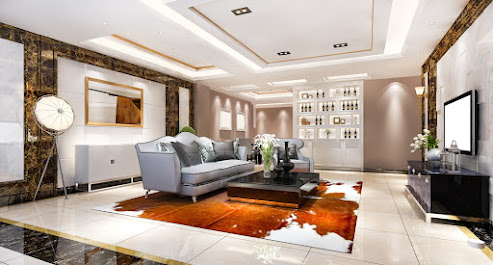
Are you passionate about transforming spaces into beautiful and functional works of art? Do you have an eye for aesthetics, attention to detail, and a knack for design? If so, pursuing a career as an interior designer in New Zealand might be the perfect path for you. As an interior designer, you'll have the opportunity to create inspiring environments and make a positive impact on people's lives.
In this comprehensive guide, we'll walk you through the steps to become an interior designer in New Zealand. From gaining relevant education and practical experience to understanding the industry's ins and outs, this article will equip you with the knowledge and resources necessary to embark on a successful interior design career.
Understand the Role of an Interior Designer
Before delving into the specifics, it's important to grasp the role and responsibilities of an interior designer. Interior designers are professionals who possess the skills and expertise to transform interior spaces, considering factors such as functionality, aesthetics, safety, and sustainability. They work closely with clients, architects, contractors, and other stakeholders to create visually appealing and functional spaces that meet the client's needs and preferences.
1. Research and Choose the Right Education Path
To become an interior designer in New Zealand, obtaining relevant education is crucial. There are several educational paths you can choose, including:
2. Bachelor's Degree in Interior Design
Pursuing a four-year bachelor's degree in interior design will provide you with a comprehensive understanding of design principles, space planning, materials, lighting, and more. This degree offers a well-rounded education and serves as a strong foundation for your career.
3. Diploma or Certificate in Interior Design
If you prefer a shorter and more focused program, you can opt for a diploma or certificate course in interior design. These programs generally span one to two years and provide practical knowledge and skills to kickstart your career.
Develop Essential Skills and Specialize
While education equips you with the necessary theoretical knowledge, developing essential skills is equally important to succeed as an interior designer. Some key skills include:
1. Creativity and Design Sense
Cultivating a strong sense of aesthetics, color theory, and spatial design is crucial for an interior designer. Sharpen your creative abilities through regular practice and exposure to design trends.
2. Technical Proficiency
Familiarize yourself with industry-standard software like AutoCAD, SketchUp, and Adobe Creative Suite. These tools will assist you in creating accurate floor plans, 3D visualizations, and design presentations.
3. Communication and Collaboration
Interior designers often work as part of a team, collaborating with architects, contractors, and clients. Enhance your communication skills to effectively convey your design ideas and work harmoniously with others.
4. Attention to Detail
Meticulous attention to detail ensures that your designs are precise, functional, and visually appealing. Develop the ability to consider every aspect, from furniture placement to lighting fixtures.
5. Business and Marketing Skills
Aspiring interior designers must also acquire a basic understanding of business principles, marketing strategies, and project management. These skills will aid you in running your own design business or working within a firm.
Also, Read: https://megazinedaily.blogspot.com/2023/05/unleashing-gaming-power-exploring-best.html
Also, Read: https://megazinedaily.blogspot.com/2023/04/top-10-gadgets-for-tech-enthusiasts-in.html
Also, Read: https://megazinedaily.blogspot.com/2023/05/documentation-of-multi-techno.html
Gain Practical Experience
Practical experience is vital in the interior design field, as it allows you to apply your knowledge in real-world scenarios and build a strong portfolio. Here are some ways to gain practical experience:
1. Internships and Apprenticeships
Seek internships or apprenticeships with established interior design firms or professionals. This hands-on experience will expose you to the industry's dynamics, client interactions, project management, and more.
 |
2. Volunteering and Pro Bono Work
Offer your services to non-profit organizations, community centers, or local businesses. This not only allows you to practice your skills but also enables you to give back to the community and expand your network.
3. Personal Projects
Undertake personal design projects to showcase your creativity and design style. These can include redesigning a room in your home, helping a friend with their space, or participating in design competitions.
Networking and Industry Involvement
Building a strong professional network is essential in the interior design industry. Here are a few strategies to expand your connections:
1. Join Professional Associations
Become a member of industry organizations like the Designers Institute of New Zealand (DINZ) or the Interior Design Association of New Zealand (IDANZ). These associations provide networking opportunities, access to resources, and professional development programs.
2. Attend Trade Shows and Events
Participate in design trade shows, conferences, and seminars to connect with fellow professionals, suppliers, and potential clients. These events are excellent platforms to stay updated on the latest industry trends and advancements.
3. Online Presence
Establish an online presence by creating a portfolio website and utilizing social media platforms like Instagram and LinkedIn. Share your design work, engage with the design community, and leverage these platforms to attract clients and collaborators.
Conclusion
Becoming an interior designer in New Zealand requires a combination of education, skills, practical experience, and networking. By following the steps outlined in this comprehensive guide, you'll be well on your way to pursuing a successful career in the exciting field of interior design. Remember to stay updated with industry trends, continuously refine your skills, and seek inspiration from various sources to fuel your creativity. With dedication and perseverance, you can turn your passion for design into a fulfilling profession that transforms spaces and enhances people's lives.






0 Comments
Say Good Ideas to your Comments.